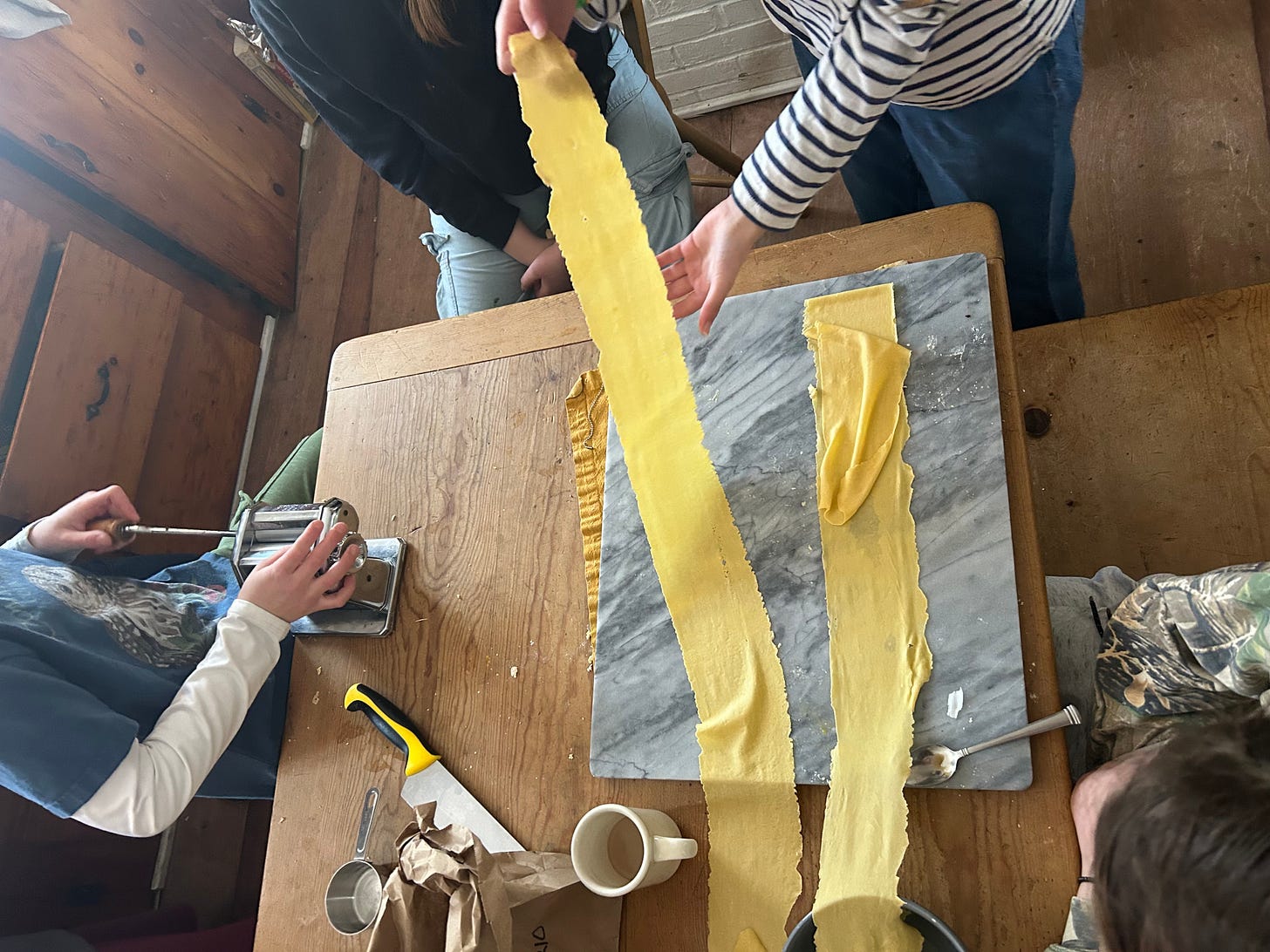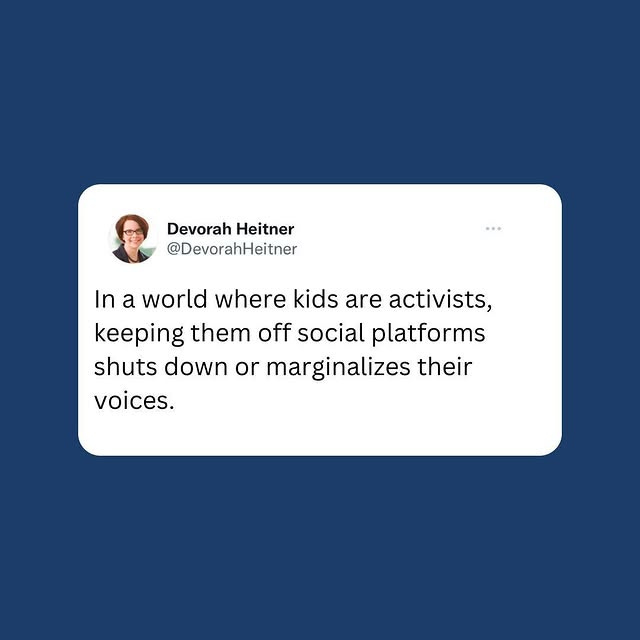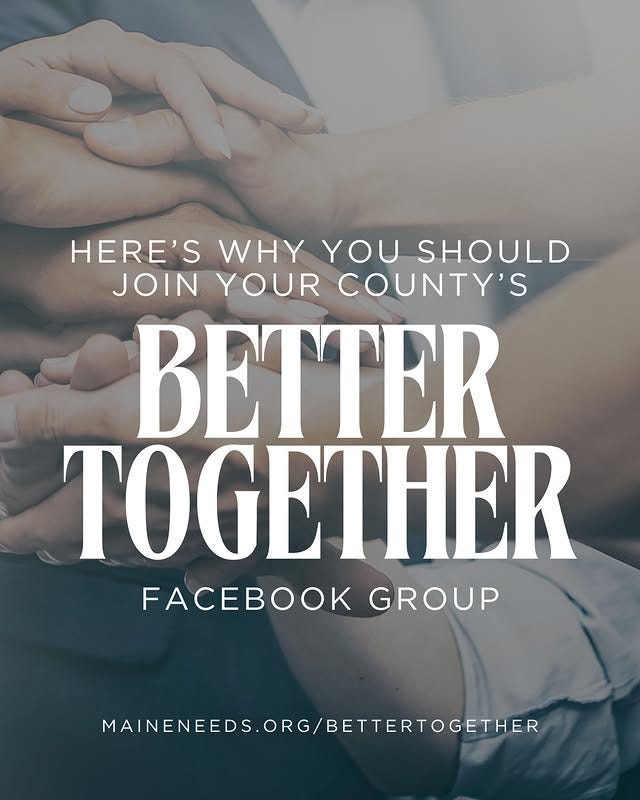I homeschool and I'm worried about "school choice"
Because I think it misses an opportunity to actually support children.
Unless you’ve been living under a rock (and frankly, i wish my January had been spent in a cave somewhere), then you’ll know that one of the incoming US administration’s policies involves the misleadingly-named “school choice.”
According to Trump’s campaign agenda, implementing school choice means that parents will be able to choose what school their child attends, regardless of zipcode or whether the school is private or public. This will vary state by state, but basically the public funding that would usually have followed your child to their local public school, may, under any new school choice legislation, follow your child wherever you, the parent, want it to go - perhaps to your local private religious school, or perhaps to your local Waldorf school, or perhaps to a different public school to the one nearest to you.
Many homeschoolers and conservatives in the US welcome this, in the same way they welcome dismantling the Department of Education, which according to them is the source of all evil and all that is wrong with our ‘broken’ school system, as they like to call it. (That said, some homeschool groups and co-ops are anti-school choice, for reasons I have yet to investigate but I think have something to do with not wanting strings attached.)
I’m going to try to offer a balanced, fair look at school choice both in principle and practice, because I don’t think it’s as black and white as many of us on the left or right think it is.
From my research, I’ve learned that a huge issue is that school choice is going to have different results in different districts and states. Every program is different, sometimes in very fundamental ways, and every town and region and state is different. These are very obvious statements but they matter in this context, because it becomes very hard to make sweeping generalisations when we recognise these facts.
In other words, school choice’s success often depends on the specific situation and on how the particular program is implemented. And perhaps making sweeping statements about it is in fact counterproductive.
Could it be a good thing?
In principle, having more educational choice, in the sense that our young people and families can find care and learning options that work for them, seems like a good thing. I would love for this to be the case. I would love to have publicly-funded settings that embraced a variety of methods and practices. What we currently have is the opposite of that!
But the thing is, in practice what they are calling “school choice, ” is not that. For one, it’s not really about expanding or re-imagining education, but rather about defunding public schools because they are seen as proponents of DEI and ‘the woke agenda.’ The intention behind school choice as it currently stands, is to reinforce parental rights and chip away at the rights of children.
All of that said, many states and districts already have school choice in various degrees, and it might be worth looking at how they are doing. Going state by state is beyond my capabilities, obviously, but I will give some examples.
In Maine, where I live, there is a degree of school choice - Maine’s program is in fact the second oldest in the country behind Vermont’s. This system varies depending on district and town, and the results of this are mixed. In my district, if you live in a town without a public school, you get a choice of both public and private schools to attend. This seems like a good thing, right? But if you live in a town that does operate a public school, there your child shall go unless you pay to send them elsewhere. If one of the points of the education system is to ensure equality of access to education, and equality of choice, then this system is not fully successful because it means some children will have a variety of choices, and others will potentially have to attend a public school that may or may not be suitable. It seems like making school choice available to some and not others, reinforces social disparity. I can also see how it could lead to segregation by socioeconomic status, if people who can move to towns where school choice is more available, and those you aren’t able to move remain in towns with a public school that may or may not be good, and may also receive less funding due to families moving away.
And this particular system emphasises the issue with school choice: it’s often, only for some. Usually those who can afford to live in districts where there is choice, can afford to travel to the school of their choice, are able to navigate the system and also able to navigate their child’s enrollment in private schools.
But what if EVERYONE has access to school choice? This still doesn’t mean everyone is actually accepted into the school of their choice, but in principle it means everyone can apply.
In Utah, the Utah Fits All Scholarship program, now (since 2024) offers each child an Education Savings Account (ESA) of $8000 for school or homeschool expenses. What this means is that each child who does not enroll full-time in public school (this includes children who are part-time public schoolers), has access to funds for their education of choice. There are various terms and conditions to receiving an ESA, one of which is that although it can be universally accessed families do need to actively apply, and not every child receives it - this in itself might present a barrier to those who are less resourced. As a homeschooler, this sounds fabulous - 8k to spend on homeschool activities is THE DREAM.
At what cost?
This is what I always come back to. Who is benefiting and who is losing out? Many private school fees might exceed the ESA amount what with tuition, travel costs, extra expenses, and other barriers like shorter term times, shorter school days, entry requirements, less or no access to accommodations for disabled or neurodivergent children, and sometimes active discrimination against families of colour or LGBTQ+ families. The Utah program is not eligible to children who already receive other federal funds, which ends up excluding those who get Special Education funding, for example.
All of these things might not actually make this ‘universal school choice’ universally accessible. In addition, A Princeton University working paper found that private schools that were receiving public funds tended to raise their fees - an utterly predictable result, frankly, of turning education into a profitable business rather than a public service.
This particular program in Utah is limited, in the sense that there are only a certain number of scholarships, and families must apply each year. On the positive side, it does claim to prefer applications from low income families. Since there is a limit to how many people can access school choice, the result of this is that public funding is diverted from public schools to private ones, and the children who stay in public schools may feel the effect of the funding drain.
This is an accusation that gets levied at school choice programs everywhere: they divert funds from public schools. This impacts the public schools and the children who stay in them, and it further defunds an already struggling system of public education. Or so the argument goes. The research on this is a minefield, because it’s often quite difficult to figure out what it actually says (as opposed to what it claims to say, or others claim it says).
One 2013 study found a really interesting pattern: while other research has not confirmed that high-achieving students tend to leave public school, thereby impacting public school overall achievement, the 2013 study followed “low-performing” school choice students in New York City that left their private options and went back to public school. It found that these students tend to apply to lower performing school choice options, often get pushed out by their private schools and end up in low-performing public schools.
The question is, do we care about public education?
As someone who advocates for consent-based, self-directed education and is a big critic of mainstream schooling, perhaps defunding a system that has always been rooted in coercion, might not be so bad after all?
I understand where people who entertain this idea are coming from, but I vehemently disagree. The government might not have our best interests at heart, but at least it is to an extent, accountable to the people. Anyone can join their school board or their local government meetings and have a voice. Privatising the education system means we no longer have actual recourse, and schools no longer need to be accountable to the people at large. In states where there is less regulation about what private schools can do, this could have dire consequences for the most marginalised children.
If defunding public school meant that we somehow formed a grassroots movement of parents and educators and divested from schooling culture in order to come together and create a variety of democratic, noncoercive spaces run by the people for the people.. then sure, sign me up!
But “school choice” is the furthest thing from that. It is defunding a public service and funneling money to private entities that owe us, and our children, nothing. The element of choice is empowering for parents in the same way it’s empowering to go to the grocery store and “choose” between cereal made by Nestle or Kelloggs or a variety of private corporations. Some of us might have some local, small-scale cereal options that we can afford; many of us will not. This is not really choice, as far as I’m concerned.
How much should we rely on the research?
Much of the research is about how children and families do if they avail of school choice. What’s interesting about this is that it misses the bigger picture, the ‘at what cost’ element. Focusing only on how those who avail of the program do, is inherently misleading.
But let’s say that we’re only looking at how kids do with school choice.
It’s hard to generalise because, like I mentioned at the top, every state has slightly different programs. Ontop of that, a lot of studies are inherently biased because they are either conducted or funded by advocates of school choice; and getting accurate data from states can be difficult and impact the reliability of studies.
A review of the research on Education Week showed a few things: early studies from the 2000s showed that students who went to private school through school choice programs did better on academic metrics than their public school peers. More recent studies with larger numbers of children, found the opposite. Some studies have found that greater competition benefits both public and private schools, and that students who avail of school choice don’t necessarily achieve better acadmic results overall.
While earlier studies showed that when school choice was geared at lower income students, they benefited from it, some research now shows that the biggest beneficiaries of universal school choice are in fact wealthier families. In some of the newer programs, most private school students who avail of school choice, were actually already enrolled in private school (in other words, they could afford private education and now they are getting it for free or almost free.)
A 2024 Brookings study found that a recently expanded universal school choice program in Arizona, disproportionately benefited wealthier families; the higher the income bracket, the more likely families were to benefit from an ESA. Areas with the highest educational attainment (measured by the rate of college admissions) tended to have higher rates of participation in school choice. The study states that “More advantaged communities are securing a highly disproportionate share of these scholarships.” Arizona has one of the most expansive universal school choice programs, and the Brookings study conclues that “Nothing in the analysis above even remotely suggests that this program is addressing inequities in school access by students’ socioeconomic status.”
We need to look at this differently
A massive bias in the research, in my opinion, is that it focuses a lot on schooling metrics. This is understandable and predictable, but I wish there were more research on things like young people’s mental health and general wellbeing, and on the social and economic long-term effects of these kind of policies. I would like to see more conversations around how suburban segregation, which is already increasing in many states, would be affected by increasing availability of school choice. A recent report points out that school choice policies that don’t explicitly have integration as an aim, will probably lead to increased segregation.
As always with educational research, so much of it does not account for children and young people’s voices. I point this out every time I quote research because it’s almost always true, and it needs to change.
It would also be interesting to see more research on whether school choice allows for an expansion of what we view as education. Does school choice allow for a radical re-imagining of education? Does it allow for a wider variety of care and learning options that stretch outside of a mainstream framework? We know that alternative schools exist, and that democratic, free, and self-directed settings exist. It’s not super clear to me whether and how school choice programs benefit these spaces.
In our area of Maine, you need to be an official school, and abide by specific accountability measures, in order to receive funding via school choice programs. This means that our local self-directed spaces do not qualify for public funding - they would only qualify if they could tick specific boxes in terms of curriculum, and that would defeat the entire purpose of being self-directed and democratic.
We do have interest-led, alternative schools nearby that are not fully self-directed, but are trying to lean towards self-direction and democracy. These options are available through school choice in our area, and so I suppose in this very limited context, these options are a good thing.
But they also don’t erase all of the other side-effects, or sometimes actual implicit intentions, of school choice that I mention above.
School choice misses the point
One of the pillars of school choice is the aim of strengthening the right of parents to choose. This, combined with the focus on achievement, entirely misses the point.
If I were to get behind school choice, it would have to be centred around the rights and autonomy of young people - that’s it.
It would have to have as an explicit goal, the increased freedom, agency and sovereignty of children and young people. It would have aim to completely re-imagine what childhood and education might look like, with those most affected at the very centre of it.
As of now, school choice programs are more interested in metrics and championing parental rights - two things we could argue are actively complicit in the oppression of children and young people.
Sure, in some cases, school choice programs support democratic schools or alternative settings. That’s wonderful - but as far as I can see, that is not the aim of the administration’s programs, and it is also not what school choice will entail for the vast majority of children and families.
I want to hear your thoughts, questions, opinions, perhaps opposing arguments?
Comment below ;)
As always, thank you for reading and let’s keep fighting for our children to be treated as actual people!











